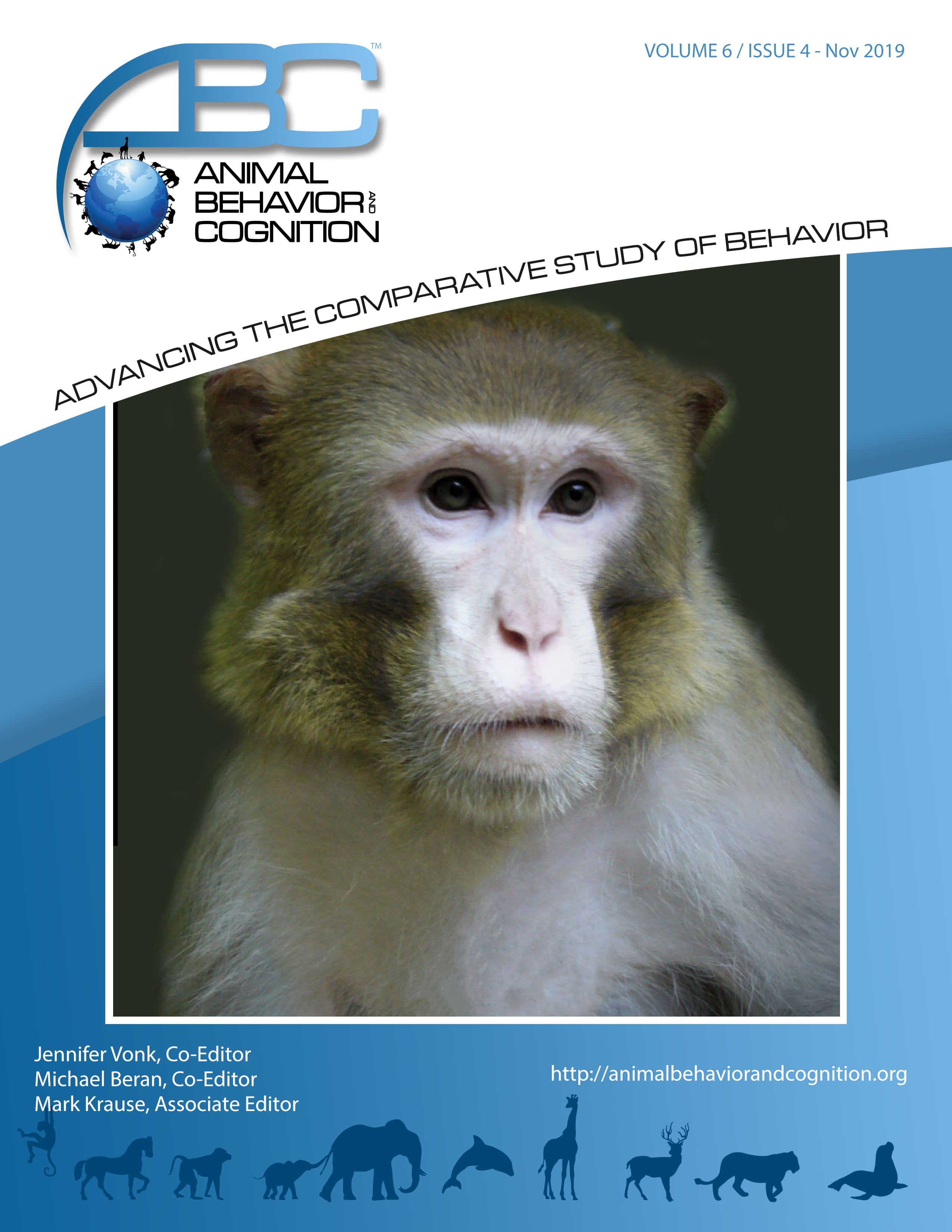Vol 6, Issue 4, November 2019
Animal Metacognition: A Decade of Progress, Problems, and the Development of New Prospects
Citation
Beran, M. J. (2019). Animal metacognition: A decade of progress, problems, and the development of new prospects. Animal Behavior and Cognition, 6(4), 223-229. https://doi.org/10.26451/abc.06.04.01.2019
Abstract
In 2009, a special issue of Comparative Cognition and Behavior Reviews offered a series of target articles by researchers and theorists who debated the claim that animals were capable of engaging in metacognition. That special issue outlined some of the crucial points of contention at that time, and it also pointed the way toward refinements in the approaches used in empirical work with animals. The papers in that special issue framed the debate about whether animals’ performances were better accounted for by learning mechanisms or first-order cognitive processes rather than metacognitive processes. In the decade since that special issue, substantial empirical and theoretical work has emerged on this question. This issue of Animal Behavior and Cognition presents some of that ongoing research and the new debate that it has generated. Proponents for and against claims that animals engage in metacognition offer their perspectives on existing data and what future research is needed to continue to move forward the exploration of animal metacognition. Research of the past decade has demonstrated a range of behavioral phenomena that cannot be accounted for by simply appealing to associative learning or monitoring external stimuli that serve as cues to evoke escape responses and other forms of metacognitive behaviors. However, there remain some important empirical and theoretical challenges to accepting that some animals are metacognitive (as was true also in 2009). These challenges should help frame the next decade of research, while at the same time being responsive to the full range of reported competencies shown by animals to date, and into the future.
Keywords
Metacognition, Comparative psychology, Comparative cognition, Control, Monitoring
